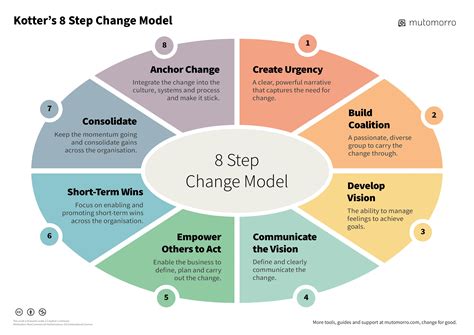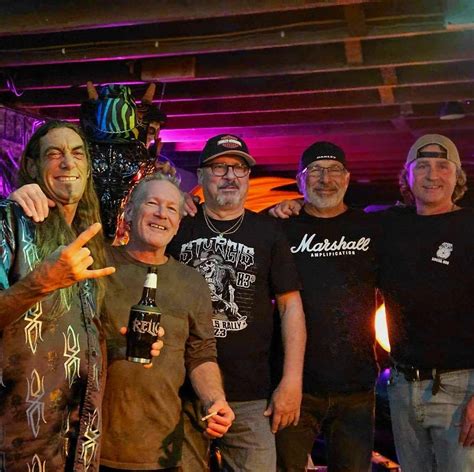
Poor ticket sales have forced the cancellation of the inaugural GoldenSky Country Music Festival, scheduled for October 19-20 in Sacramento, California, disappointing country music fans and raising questions about the viability of new festivals in a competitive market. Organizers cited insufficient demand as the primary reason for pulling the plug on the event, which was set to feature headliners Blake Shelton and Tim McGraw.
The cancellation, announced this week, has left ticketholders scrambling for refunds and industry observers pondering the factors that contributed to the festival’s downfall. “Despite our best efforts, the ticket sales for GoldenSky 2024 have not materialized as anticipated,” a statement from festival organizers read. “We were looking forward to bringing an exceptional experience to the Sacramento area, and we are incredibly disappointed to share this news.”
GoldenSky was poised to be a significant addition to the country music festival landscape, boasting a lineup that included not only Shelton and McGraw but also prominent acts such as Jon Pardi, Brooks & Dunn, Carly Pearce, Midland, and Bailey Zimmerman. The festival was planned as a two-day event held at Discovery Park, a well-known outdoor venue in Sacramento. The cancellation marks a setback for the organizers and raises concerns about the challenges of launching a new festival in a saturated market.
The decision to cancel GoldenSky underscores the competitive nature of the music festival industry, where established events often overshadow newcomers. The current economic climate, where consumers are becoming more selective with their entertainment spending, may have also played a role in the festival’s inability to attract sufficient ticket sales. The failure highlights the risks associated with launching new events, even with high-profile headliners and a seemingly attractive location.
Impact on Ticketholders and Vendors
The immediate impact of the cancellation is most acutely felt by those who had already purchased tickets to GoldenSky. Organizers have assured ticketholders that they will receive full refunds for their purchases. “All ticket holders will receive a full refund for their tickets. Please allow 7-10 business days for the refund to process,” the festival’s statement confirmed. Ticketholders are advised to monitor their email accounts for specific instructions regarding the refund process.
Beyond ticketholders, the cancellation also affects vendors, sponsors, and local businesses that had anticipated benefiting from the influx of festival attendees. These stakeholders had invested time and resources in preparation for the event, and the cancellation represents a financial loss and a missed opportunity. The impact on local hotels, restaurants, and transportation services is also noteworthy, as they were expecting increased business during the festival weekend.
Challenges in a Competitive Market
The music festival industry has become increasingly crowded in recent years, with numerous events vying for the attention and disposable income of music fans. Established festivals with a proven track record often have a significant advantage over new entrants, as they have built a loyal following and a strong brand reputation. GoldenSky faced the challenge of competing against these established events, as well as other entertainment options available to consumers.
One of the key challenges for new festivals is attracting a critical mass of attendees in their inaugural year. This requires a significant investment in marketing and promotion, as well as a compelling lineup that differentiates the festival from its competitors. GoldenSky’s lineup was undoubtedly strong, but it may not have been enough to overcome the challenges of launching a new event in a competitive market.
The economic climate also plays a significant role in the success or failure of music festivals. When the economy is strong, consumers are more likely to spend money on discretionary items such as festival tickets. However, during periods of economic uncertainty, consumers may become more cautious with their spending, prioritizing essential expenses over entertainment.
Factors Contributing to Poor Ticket Sales
Several factors may have contributed to GoldenSky’s inability to generate sufficient ticket sales. One possibility is that the ticket prices were too high for the target audience. Music festival tickets can be expensive, especially for multi-day events with high-profile headliners. If the ticket prices were perceived as being too expensive, potential attendees may have been deterred from purchasing them.
Another factor could have been the timing of the festival. October is a busy month for events and activities, and GoldenSky may have faced competition from other festivals, concerts, and sporting events. Additionally, the weather in Sacramento in October can be unpredictable, which may have discouraged some potential attendees.
Marketing and promotion also play a crucial role in driving ticket sales. If the festival’s marketing efforts were not effective in reaching the target audience, it may have struggled to generate sufficient awareness and interest. It is possible that the marketing campaign was not targeted effectively or that it did not adequately communicate the unique value proposition of the festival.
The absence of a unique selling point may have also contributed to the low sales. In a saturated market, a festival needs to offer something different or special to stand out from the competition. This could be a unique theme, a distinctive location, or a curated experience that appeals to a specific niche audience. Without a clear differentiator, GoldenSky may have been perceived as just another country music festival, making it difficult to attract attendees.
The Role of Headliners
While headliners can be a major draw for music festivals, they are not always a guarantee of success. GoldenSky’s lineup included two of the biggest names in country music, Blake Shelton and Tim McGraw, but even their star power was not enough to overcome the challenges facing the festival. This suggests that other factors, such as ticket prices, timing, marketing, and competition, played a more significant role in the festival’s failure.
In some cases, headliners can actually be a detriment to a festival if they are perceived as being too expensive or if they do not appeal to the target audience. It is important for festival organizers to carefully consider the lineup and ensure that it aligns with the overall brand and target audience of the event.
The Future of Music Festivals
The cancellation of GoldenSky raises questions about the future of music festivals in a competitive and ever-changing market. While established festivals are likely to continue to thrive, new entrants face significant challenges in attracting attendees and building a sustainable business model.
To succeed, new festivals need to differentiate themselves from the competition, offer a unique and compelling experience, and effectively target their marketing efforts. They also need to be mindful of ticket prices and the economic climate, and be prepared to adapt to changing consumer preferences.
The cancellation of GoldenSky serves as a cautionary tale for aspiring festival organizers, highlighting the risks and challenges involved in launching a new event. It also underscores the importance of careful planning, effective marketing, and a deep understanding of the target audience.
Economic Impact on Sacramento
The cancellation of GoldenSky Festival has a ripple effect on the economy of Sacramento. The city anticipated a surge in tourism, with thousands of attendees expected to spend money on accommodations, food, transportation, and other local services. The financial loss extends to hotels, restaurants, transportation companies, and various local businesses that had prepared for the influx of festival-goers.
Hotels that had blocked rooms for festival attendees now face vacancies, and restaurants that had stocked up on supplies may experience financial strain. Local transportation services, including taxis and ride-sharing companies, will miss out on increased demand. The economic impact underscores the significant role that large-scale events play in supporting local economies and highlights the potential consequences when such events are canceled. The city might experience reduced tax revenues due to decreased economic activity, which could affect local government budgets.
The cancellation also impacts the employment sector, with temporary jobs created for the festival now eliminated. These jobs included security personnel, event staff, food vendors, and other support roles. The loss of these employment opportunities affects individuals and families who were relying on the income generated by the festival.
Long-Term Implications for Sacramento’s Music Scene
Beyond the immediate economic impact, the cancellation of GoldenSky Festival has potential long-term implications for Sacramento’s music scene. The city was hoping to establish itself as a premier destination for country music, attracting fans and artists from across the country. The cancellation could damage Sacramento’s reputation and make it more difficult to attract future large-scale music events.
Sacramento’s efforts to cultivate a vibrant and diverse music scene may face setbacks as organizers and investors become more cautious about investing in new events. The city’s ability to compete with other music hubs could be compromised, potentially affecting the local music industry and related businesses. However, the cancellation could also serve as a learning experience for the city and local organizers, prompting them to reassess their strategies and develop more sustainable approaches to attracting and hosting music festivals.
The Importance of Community Support
The success of any music festival depends heavily on community support. GoldenSky Festival may have struggled to gain the backing of local residents, businesses, and organizations. Strong community support can provide a solid foundation for a festival, helping to generate buzz, attract volunteers, and foster a sense of ownership and pride.
Local residents can play a crucial role in promoting the festival, spreading the word, and welcoming attendees. Local businesses can benefit from the increased foot traffic and revenue generated by the event. Community organizations can contribute by providing volunteers, resources, and support services. Without strong community support, a festival may struggle to gain traction and achieve its goals.
GoldenSky’s organizers could have worked more closely with local stakeholders to build a stronger foundation of support. This could have involved engaging with community leaders, partnering with local businesses, and offering incentives for residents to attend the festival. By fostering a sense of collaboration and shared ownership, the festival could have increased its chances of success.
Comparison to Other Festival Cancellations
The cancellation of GoldenSky Festival is not an isolated incident. Numerous music festivals have been canceled in recent years due to poor ticket sales, financial difficulties, and other challenges. Comparing GoldenSky’s situation to other festival cancellations can provide valuable insights into the factors that contribute to success or failure.
One notable example is the cancellation of Fyre Festival, which was widely publicized for its disastrous execution and false promises. Fyre Festival was plagued by poor planning, inadequate infrastructure, and a lack of transparency. The festival’s organizers were ultimately charged with fraud, and the event became a cautionary tale about the importance of delivering on promises and managing expectations.
Other festivals have been canceled due to financial problems, logistical challenges, and permitting issues. These cancellations highlight the risks involved in organizing large-scale events and the importance of careful planning, risk management, and contingency planning. By studying these examples, festival organizers can learn from past mistakes and develop strategies to mitigate potential risks.
Lessons Learned and Future Strategies
The cancellation of GoldenSky Festival provides valuable lessons for festival organizers, local communities, and the music industry as a whole. One of the key lessons is the importance of careful planning and risk management. Festival organizers need to conduct thorough market research, develop a realistic budget, and secure adequate funding.
They also need to develop a comprehensive marketing strategy, build strong relationships with local stakeholders, and create a contingency plan to address potential challenges. Local communities can support festivals by providing resources, volunteers, and infrastructure. The music industry can help by providing guidance, expertise, and support services.
Moving forward, it is essential for festival organizers to adopt a more sustainable and collaborative approach. This involves working closely with local communities, engaging with fans, and creating a positive and inclusive environment. By prioritizing sustainability, community engagement, and innovation, festivals can increase their chances of success and contribute to the vibrancy of the music industry.
The Role of Social Media and Influencer Marketing
In today’s digital age, social media and influencer marketing play a crucial role in promoting music festivals and driving ticket sales. GoldenSky Festival may have struggled to effectively leverage these tools to reach its target audience. Social media platforms like Instagram, Facebook, and TikTok offer powerful ways to engage with potential attendees, build excitement, and create a sense of community.
Influencer marketing involves partnering with social media influencers to promote the festival to their followers. Influencers can create content, share their experiences, and generate buzz around the event. To be effective, influencer marketing campaigns need to be carefully targeted and authentic.
GoldenSky’s organizers could have collaborated with country music influencers to reach a wider audience and build credibility. They could have also used social media to showcase the festival’s unique features, highlight the lineup, and engage with fans. By leveraging social media and influencer marketing effectively, festivals can increase their visibility, drive ticket sales, and create a lasting impression.
The Importance of a Unique Festival Experience
In a crowded market, it is essential for music festivals to offer a unique and compelling experience that sets them apart from the competition. GoldenSky Festival may have lacked a distinct identity or a unique selling proposition that would have attracted attendees. A unique festival experience can involve various elements, such as a curated lineup, a distinctive theme, a unique location, or innovative activities.
For example, some festivals focus on showcasing emerging artists, while others emphasize sustainability and environmental awareness. Some festivals are held in unusual locations, such as abandoned factories or remote beaches, while others offer interactive art installations and immersive experiences. By creating a unique festival experience, organizers can attract a loyal following and build a strong brand reputation.
GoldenSky could have differentiated itself by focusing on a specific niche within country music, such as Americana or bluegrass. It could have also incorporated local elements, such as regional cuisine, local artists, and community activities. By creating a unique and authentic experience, the festival could have resonated with attendees and generated positive word-of-mouth.
Contingency Planning and Risk Mitigation
The cancellation of GoldenSky Festival underscores the importance of contingency planning and risk mitigation. Festival organizers need to anticipate potential challenges and develop plans to address them. This includes having backup plans in case of inclement weather, security threats, or financial difficulties.
Contingency planning involves identifying potential risks, assessing their impact, and developing strategies to minimize their effects. Risk mitigation involves taking steps to reduce the likelihood of these risks occurring. For example, festival organizers can purchase insurance to protect against financial losses, hire security personnel to ensure attendee safety, and develop communication plans to keep attendees informed in case of emergencies.
GoldenSky’s organizers could have had a contingency plan in place in case of poor ticket sales. This could have involved scaling back the festival, reducing costs, or postponing the event until a later date. By having a contingency plan in place, the festival could have avoided cancellation and minimized its financial losses.
The Future of Country Music Festivals
Despite the cancellation of GoldenSky Festival, the future of country music festivals remains bright. Country music continues to be one of the most popular genres in the United States, and there is a strong demand for live country music events. Established country music festivals, such as Stagecoach and CMA Fest, continue to thrive, attracting hundreds of thousands of attendees each year.
New country music festivals are also emerging, catering to different niches and demographics. These festivals offer a diverse range of experiences, from traditional country music to contemporary country pop. To succeed in the long term, country music festivals need to adapt to changing consumer preferences, embrace new technologies, and prioritize sustainability.
They also need to foster a sense of community, engage with fans, and create a positive and inclusive environment. By embracing these principles, country music festivals can continue to thrive and provide memorable experiences for fans for years to come.
Analysis of the Sacramento Market
The Sacramento market presents unique opportunities and challenges for music festivals. The city is located in a growing metropolitan area with a diverse population and a strong music scene. Sacramento also benefits from its proximity to other major cities, such as San Francisco and Los Angeles, which can draw attendees from a wider region.
However, Sacramento also faces competition from other entertainment options, such as professional sports, concerts, and cultural events. The city’s infrastructure and transportation systems can also pose challenges for large-scale events. To succeed in the Sacramento market, festival organizers need to carefully consider these factors and develop strategies to address them.
This includes choosing a suitable venue, developing a comprehensive marketing plan, and working closely with local authorities and community organizations. By understanding the unique characteristics of the Sacramento market, festival organizers can increase their chances of success and contribute to the city’s vibrant music scene.
The Cancellation’s Broader Implications
The cancellation of the GoldenSky Country Music Festival serves as a microcosm of the broader challenges facing the live music industry. It highlights the increasing risks associated with launching new events in a saturated market, the importance of adapting to changing consumer preferences, and the need for careful planning and execution.
The live music industry has undergone significant changes in recent years, driven by factors such as the rise of streaming services, the increasing cost of touring, and the growing competition for consumer attention. To thrive in this environment, music festivals and other live events need to innovate, differentiate themselves, and provide unique and compelling experiences that justify the cost of attendance.
The cancellation also underscores the importance of community support and collaboration. Live music events can play a vital role in supporting local economies, fostering cultural exchange, and creating a sense of community. By working together, festival organizers, local communities, and the music industry can create a more sustainable and vibrant ecosystem for live music.
Frequently Asked Questions (FAQ)
-
Why was the GoldenSky Country Music Festival canceled? The festival was canceled due to poor ticket sales, with organizers stating that ticket sales “have not materialized as anticipated.” This suggests insufficient demand to make the event financially viable.
-
Will I get a refund if I bought a ticket to GoldenSky? Yes, organizers have confirmed that “all ticket holders will receive a full refund for their tickets.” They advise allowing 7-10 business days for the refund to process.
-
Who were the headliners scheduled to perform at GoldenSky? The headliners were Blake Shelton and Tim McGraw, with other prominent acts including Jon Pardi, Brooks & Dunn, Carly Pearce, Midland, and Bailey Zimmerman.
-
Where was GoldenSky supposed to take place? The festival was planned to be a two-day event held at Discovery Park in Sacramento, California.
-
What does this cancellation mean for the future of music festivals in Sacramento? The cancellation could damage Sacramento’s reputation and make it more difficult to attract future large-scale music events. However, it could also serve as a learning experience for the city and local organizers, prompting them to reassess their strategies and develop more sustainable approaches to attracting and hosting music festivals.
Detailed Exploration of Potential Causes for Cancellation
Beyond the simple statement of “poor ticket sales,” several underlying factors likely contributed to the GoldenSky Country Music Festival’s cancellation. A deeper examination of these potential causes is essential for understanding the event’s failure and drawing lessons for future endeavors.
Market Saturation and Competition: The music festival market, particularly in the country music genre, is highly competitive. Numerous established festivals with strong brand recognition and loyal followings already exist. GoldenSky, as a new entrant, faced the challenge of differentiating itself and attracting attendees away from these established events. The competition for entertainment dollars is fierce, with consumers having a wide array of choices for how to spend their leisure time and disposable income.
Ticket Pricing Strategy: The price of tickets is a critical factor influencing attendance. If the ticket prices were perceived as too high relative to the value offered, potential attendees may have been deterred. Factors such as the cost of headliners, production expenses, and the overall festival experience contribute to ticket pricing. A careful analysis of comparable festivals and market research is crucial for setting prices that are both profitable and attractive to consumers. It’s possible that GoldenSky’s pricing strategy didn’t align with the perceived value or the budget constraints of its target audience.
Marketing and Promotion Effectiveness: The effectiveness of marketing and promotional efforts plays a vital role in driving ticket sales. A poorly executed or inadequately funded marketing campaign can fail to reach the target audience or generate sufficient interest. Factors such as the choice of marketing channels, the messaging used, and the timing of the campaign all contribute to its success. It’s possible that GoldenSky’s marketing efforts were not targeted effectively, did not adequately communicate the festival’s unique value proposition, or were simply insufficient to overcome the challenges of launching a new event.
Timing and Scheduling: The timing of the festival can also influence attendance. October is a busy month for events, and GoldenSky may have faced competition from other festivals, concerts, and sporting events. Additionally, the weather in Sacramento in October can be unpredictable, which may have discouraged some potential attendees. A careful consideration of the calendar and potential conflicts is essential for maximizing attendance.
Economic Factors: The overall economic climate can significantly impact consumer spending on discretionary items such as festival tickets. During periods of economic uncertainty or recession, consumers may become more cautious with their spending and prioritize essential expenses over entertainment. The current economic environment, characterized by inflation and rising interest rates, may have contributed to GoldenSky’s inability to attract sufficient ticket sales.
Venue and Location: While Discovery Park is a well-known outdoor venue in Sacramento, its suitability for a country music festival may have been a factor. Considerations such as accessibility, parking, amenities, and the overall atmosphere of the venue can influence attendee satisfaction. If the venue was perceived as inconvenient or lacking in certain amenities, it may have deterred some potential attendees.
Lack of a Unique Selling Proposition (USP): In a saturated market, it is essential for a festival to offer something unique or special to stand out from the competition. This could be a unique theme, a distinctive location, a curated experience, or a focus on a specific niche within the country music genre. Without a clear USP, GoldenSky may have been perceived as just another country music festival, making it difficult to attract attendees.
Community Engagement and Local Support: Strong community engagement and local support are essential for the success of any festival. This includes building relationships with local businesses, community organizations, and government agencies. If GoldenSky failed to engage effectively with the local community, it may have missed out on valuable opportunities for promotion and support.
Impact of Headliner Choices: While Blake Shelton and Tim McGraw are undoubtedly major stars, their appeal to the specific target audience for GoldenSky may have been a factor. It’s possible that their fan base did not align perfectly with the demographics or musical tastes of the intended attendees. A careful consideration of the headliners’ appeal and their ability to drive ticket sales is essential for festival success.
Organizational and Logistical Challenges: Launching a new festival is a complex undertaking that requires meticulous planning and execution. Organizational and logistical challenges, such as securing permits, coordinating vendors, and managing security, can all impact the success of the event. It’s possible that GoldenSky faced unforeseen challenges in these areas, which contributed to its cancellation.
Reputation and Trust: In the age of social media, reputation and trust are crucial factors influencing consumer behavior. If GoldenSky’s organizers had a negative reputation or if there were concerns about the festival’s ability to deliver on its promises, potential attendees may have been hesitant to purchase tickets. Building a strong reputation and establishing trust with consumers is essential for festival success.
Unexpected Costs and Financial Constraints: The financial viability of a festival depends on careful budgeting and cost management. Unexpected costs or financial constraints can jeopardize the event’s profitability and lead to cancellation. It’s possible that GoldenSky faced unforeseen expenses or financial challenges that contributed to its demise.
Alternative Entertainment Options: The availability of alternative entertainment options in the Sacramento area may have also contributed to GoldenSky’s cancellation. Concerts, sporting events, and other cultural attractions all compete for consumer attention and entertainment dollars. To succeed, a festival must offer a compelling experience that justifies the cost and time commitment compared to these alternative options.
Long-Term Sustainability Concerns: Potential attendees might have been hesitant to invest in tickets for an inaugural festival due to concerns about its long-term sustainability. The risk of the festival not becoming an annual event could have deterred some from purchasing tickets, particularly for multi-day passes. Establishing a clear vision for the festival’s future and demonstrating a commitment to long-term success is crucial for building trust and attracting attendees.
Weather Concerns: October in Sacramento can bring unpredictable weather. Potential attendees may have been concerned about the possibility of rain or extreme temperatures, which could negatively impact their festival experience. While organizers can’t control the weather, they can implement strategies to mitigate its impact, such as providing shelter and offering refunds in case of severe weather conditions. The perceived risk of unfavorable weather could have deterred some from purchasing tickets.









